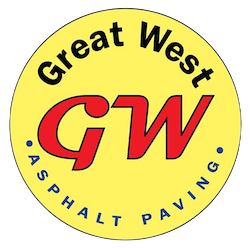Asphalt vs Concrete: Choosing the Best Paving Material for Your Project

When it comes to paving your driveway, sidewalk, or parking lot, one of the primary decisions you’ll need to make is whether to use asphalt or concrete. Both materials offer their unique advantages and considerations, and choosing the right one for your specific needs can make a significant difference in the durability and functionality of your paved area. This article will delve into the essential aspects to ponder when choosing between asphalt and concrete.
Climate Considerations
One of the crucial factors to consider when choosing between asphalt and concrete is the climate in which you live. The weather can have a significant impact on the performance and longevity of your paved surface.

Extreme Cold Climate
If you reside in an area with harsh winters and freezing temperatures, asphalt may be the better choice for your project. Asphalt is not affected by colder temperatures and can withstand contact with roadsalt, which is commonly used to melt snow and ice. Additionally, asphalt absorbs heat from the sun, leading to faster snow and ice melting compared to concrete. On the other hand, concrete is prone to frost heaves, expansion, and contraction, which can result in damage over time. Concrete also deteriorates when exposed to salt, further reducing its suitability for cold climates.
If you reside in an area with harsh winters and freezing temperatures, asphalt may be the better choice for your project. Asphalt is not affected by colder temperatures and can withstand contact with roadsalt, which is commonly used to melt snow and ice. Additionally, asphalt absorbs heat from the sun, leading to faster snow and ice melting compared to concrete. On the other hand, concrete is prone to frost heaves, expansion, and contraction, which can result in damage over time. Concrete also deteriorates when exposed to salt, further reducing its suitability for cold climates.
Extreme Hot Climate
In regions with high heat or sun exposure, concrete is the preferred pavement material. Asphalt tends to soften in extreme heat, becoming oily and sticky to drive on. This constant cycle of softening and hardening can cause cracks and sagging in the asphalt surface. Concrete, however, will re-harden once temperatures cool down, offering better durability and resilience in hot climates.
Installation and Maintenance

Installation
Asphalt is typically cheaper and faster to install compared to concrete. It requires less material and is less labor-intensive, making it an attractive option for large surfaces. With the right equipment, asphalt can be quickly applied, allowing for a shorter wait time before you can use your newly paved area. Concrete, on the other hand, takes longer to cure properly, typically requiring around a week before it is fully ready for use.
Maintenance
Maintenance is a crucial consideration when choosing a paving material, as it can impact the long-term cost and durability of your pavement. Asphalt requires more frequent maintenance compared to concrete. Although it may need regular repairs, the cost of maintenance is relatively low, and homeowners themselves can easily do many tasks. Concrete, on the other hand, generally requires less maintenance than asphalt. However, if repairs are necessary, they can be more challenging and costly to undertake compared to asphalt.

Longevity: Asphalt vs Concrete
The longevity of your paved surface is another critical factor to consider. Both asphalt and concrete can last for decades if installed properly, maintained regularly, and used within their intended capacity.
Asphalt Longevity
An asphalt driveway typically lasts for around 20 to 30 years. While asphalt may not have the same lifespan as concrete, it is generally more cost-effective to replace when it reaches the end of its durability.
Concrete Longevity
Concrete driveways, when installed correctly and maintained well, can last anywhere between 30 to 40 years. Concrete has a more extended lifespan compared to asphalt, making it a durable choice for those looking for a long-term investment. However, neglecting regular maintenance or exceeding the load-bearing capacity of the concrete surface can significantly reduce its longevity.
Sealing and Staining: Asphalt vs Concrete
Sealing and staining are essential considerations when it comes to maintaining the appearance and longevity of your paved surface.
Asphalt Sealing
Asphalt driveways need to be regularly sealed every three to five years after the initial seal. Sealing is crucial for prolonging the life of the driveway and protecting it from damage caused by weathering and chemicals. Fortunately, sealing asphalt is a task that can be done by homeowners themselves, reducing the overall cost of maintenance.
Concrete Staining
Concrete driveways do not require regular sealing. However, staining can help maintain the surface’s appearance and reduce fading over time. Concrete tends to show stains and spills more easily compared to asphalt due to its lighter color. If you choose concrete, be prepared for a more thorough cleaning regimen to keep your driveway looking fresh and stain-free.
Great West Asphalt: Your Paving Partner in Reno, Nevada
Choosing between asphalt and concrete ultimately depends on your project’s specific requirements, budget, and personal preferences. If you’re in Reno, Nevada, and looking for a reliable paving partner, Great West Asphalt is here to assist you.
We specialize in asphalt paving, repair, and maintenance for residential, commercial, and municipal projects. Our team of experts can guide you through the decision-making process and provide unbiased advice tailored to your specific needs. Contact us today to request your free quote and get started on your paving project with confidence.

